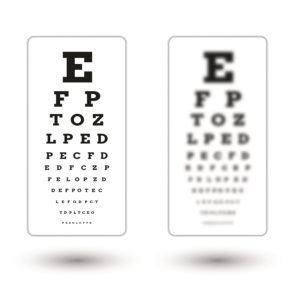
New research has linked socio-economic status to the wear and tear on our eyes.
New findings: Socio-economic status affects vision
The Centers for Disease Control and Prevention (CDC) attempted to reveal a correlation between socio-economic status and vision loss. By analyzing data from the American Community Survey they were able to study severe vision loss as it related to income.
Although it is already known that vision loss and poverty might be linked, this is the first time that such information is being illustrated. Globally, the same relationship can be seen and in the poorest of countries vision loss appears to be at its highest.
But what’s the reasoning? Does poverty cause vision loss or does vision loss lead to poverty? It’s hard to say for sure because the two are so inter-related. For instance if someone loses their vision they might find it difficult to obtain employment. And if a person is of low economic-standing they might not have the means available to partake in habits that can prevent vision loss. There is no cause and effect, but there is a correlation.
Vision loss and overall health
Vision loss can really impede on one’s health, likewise one’s health can lead to further vision loss so it’s important to take the appropriate steps to ensure vision health.
Vision loss can lead to isolation which can greatly affect one’s mental health. People who experience vision problems might develop depression.
Additionally, people with hypertension or diabetes are at risk for retinopathy. This means that managing underlining medical conditions is the key to maintaining healthy vision.
6 Ways to maintain healthy vision
- Get scheduled eye exams: Early diagnosis is the key to good treatment
- Wear protective eyewear: Whether it is sunglasses or safety goggles protecting your eyes is vital
- Eat well: Eating balanced and nutritious meals can provide your eyes with essential nutrients they need to stay healthy
- Quit smoking
- Avoid touching your eyes: Your hands and fingers are dirty. Scratching or rubbing them can allow an infection to enter your eyes
- Know your family history: Some conditions are hereditary, so knowing your family history and discussing it with your optometrist can help.
We only have one set of eyes so our goal should be to keep them healthy as long as possible.